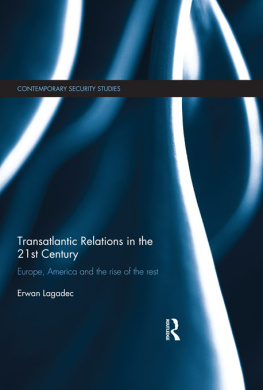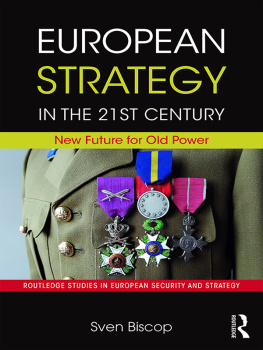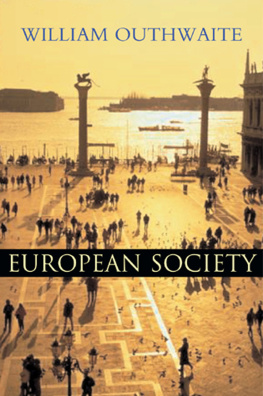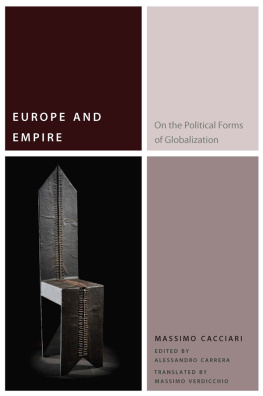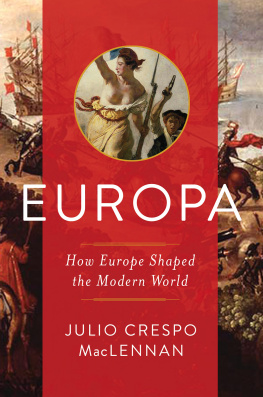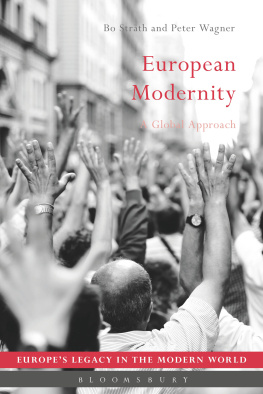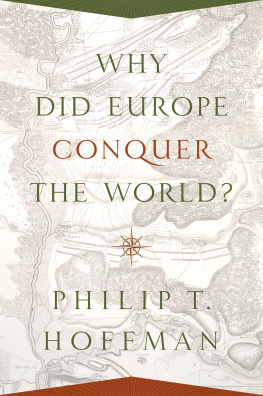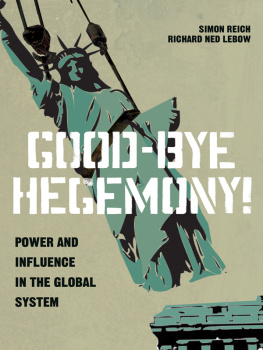
EUROPA
How Europe Shaped the Modern World

Julio Crespo MacLennan

EUROPA
Pegasus Books Ltd.
148 W. 37th Street, 13th Floor
New York, NY 10018
Copyright 2018 by Julio Crespo MacLennan
First Pegasus Books edition July 2018
Interior design by Maria Fernandez
All rights reserved. No part of this book may be reproduced in whole or in part without written permission from the publisher, except by reviewers who may quote brief excerpts in connection with a review in a newspaper, magazine, or electronic publication; nor may any part of this book be reproduced, stored in a retrieval system, or transmitted in any form or by any means electronic, mechanical, photocopying, recording, or other, without written permission from the publisher.
Library of Congress Cataloging-in-Publication Data is available.
ISBN: 978-1-68177-756-6
ISBN: 978-1-68177-824-2 (e-book)
Distributed by W. W. Norton & Company
To Hugh Thomas, in memoriam.
To Catherine, Eduardo, and Sandra, as always.
Contents

How Renaissance Europe Gave Birth to an Expanding Civilization.
How Geographic Discoveries Laid the Foundations of European Hegemony.
The Rise of the Great European Empires.
The Impact of the Era of Revolutions on European Empires and the Western World.
How China, India, and the Rest of Asia Were Shaped by European Expansion.
How European Culture and Values Were Propagated by the Great Migratory Waves.
The Golden Era of European Hegemony.
The Scramble for Africa on Behalf of Civilization, Christianity, and Imperial Interests.
How the Two World Wars Precipitated a New Post-European Era.
The Global Influence of European Intellectual Migration and Exile.
How the Legacy of Imperial Europe Shaped the Postcolonial World.
How Europe Transformed itself into a Union that Exerts Universal Attraction.

E urope over the last years has lived through very difficult times. The global financial crisis had a devastating impact on the European Union. The financial problems of the eurozone were so serious that many external observers ventured to predict an imminent collapse of the European single currency. The peoples of Europe have had to learn how to live under austerity programs that imperil their living standards. Emigration problems have been exacerbated by the Syrian refugee crisis and Islamic terrorism. While the first signs of recovery finally appeared in the EU, the next major challenge came: Brexit. The decision of the British people to leave the European Union not only implied that the European project would lose one of its four major economies, but something that was potentially more dangerous: that if people were given the opportunity to vote on membership of the European Union in a referendum they would reject it. European unification could be defeated by its worst enemy, which mainly inspired its birth: nationalism.
The last ten years have been a golden era for doomsayers and specialists in Western decline, and there have been many of these since the beginning of the twentieth century. Before every single problem that EU governments and institutions have faced, they have enjoyed warnings that the EU is doomed to disappear and that Europe on the whole is increasingly irrelevant in a new bipolar world mainly led by the United States and China, in which the latter is destined to gain the upper hand.
Yet the most recent crisis has not been exclusively European but a global crisis, and it does not seem so serious if we look at it from an historical perspective. For a continent that has survived two world wars, the problems faced by the Europeans over the last years seem quite manageable. Europe has assets that no other power or civilization possesses. Its most important legacy is the world in which we live and this in itself is enough to guarantee a very relevant role in the twenty-first century. For Europeans shaped the modern world, as this book will explain.
This book is written for readers from all walks of life and from any part of the world; all of you who have a passion for history, an infinite curiosity, and an eagerness to acquire knowledge, not to be confused with information, which is easily accessible in the Internet era. It will be particularly relevant to those who have asked questions like: What has Europe done for us? What historical trends explain the present? Who provided the essential elements of our contemporary society?
The aim of this book is to explain why Europe dominated the world from the sixteenth century to the twentieth century, in what way did it influence other continents and peoples, and finally, what were the consequences of this era of hegemony exerted by the Europeans.
The curiosity of the Europeans for other worlds, their wish for expansion and conquest, as well as their economic needs took them much further than they could ever imagine. On reaching the zenith of power, the Spanish Empire not only stretched across a great part of the American continent, but it was also a global empire over which the sun never set. Portugal also consolidated an empire that included territories in the Americas, Africa, and Asia. The British Empire at its height in the early twentieth century covered a fourth part of the globe and held sway over a fifth of the world population at that time. In that same era the territories under French dominion were also formidable, as they included almost half of the African continent. And of course a very notable example of terrestrial expansion was Russia, which managed to include a sixth of the earth in its frontiers. Holland in the seventeenth century created an empire of much more modest dimensions, but that was enough for this small nation to reach economic hegemony.
Territorial expansion was only one indicator of the power that Europeans exerted over the world. Political influence was a very important dimension due to the fact that many nations were created based on the model of the European nation-state. There was also an ideological influence as the ideas of the old continent propagated across the world. Economic power had paramount importance, for access to so many natural resources at global level was going to be essential to explain Europes economic growth. Furthermore, European powers managed to create a global market. Last but not least, Europe was going to exert its hegemony from the cultural point of view, for thanks to the expansion of its powers Western culture prevailed in a great part of the world. There was even a spiritual aspect of European dominance as a result of the extraordinary propagation of Christian religion. Several governments considered that propagating Christianity was one of the main justifications for imperial expansion, and missionaries were going to play an essential role in this task.
A very important factor that contributed to European dominance of the world in all mentioned aspects was demography. Emigration of the European population and its permanent settlement in other continents accompanied the great powers in their expansion, especially in the Americas. One of the reasons why the empires reached so far was due to the migratory zeal experienced by Europeans and the networks of emigrants created by them, particularly between the nineteenth and twentieth century when the mass migratory waves took place.
Next page

